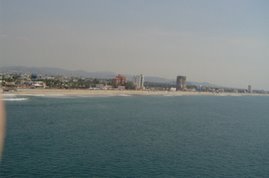
Image from: www.abc.net.au/foreign/images/russiabeerboys.jpg
“All that we are is the result of what we have thought. The secret of health for both mind and body is not to mourn for the past, worry about the future,or anticipate troubles, but to live in the present moment wisely and earnestly.” -- The Buddha
The most difficult thing to do, for me at least, is to be present in the moment, at all times. Analysis of the past, worries and concern for the future, planning etc. etc. seem to always take precedence over the present. Meditation and yoga have helped me tremendously in "being in the moment," but it has yet to become intuitive and continues to be and perhaps will always be a practice.
In session VI of class we discussed the mind, behavior, and global health. Our case study discussion as presented very effectively by Jennifer and Ivette focused on the premature death of Eastern European and Russian men due to binge drinking of vodka and other hard liquors in the post-Soviet era. While vodka has been a mainstay of Russian and Soviet society for a very long time, Russia is a very cold country after all, alcoholism has been increasing tremendously following the collapse of the Soviet Union.
This development is not surprising, considering the tremendous socio-economic changes that have taken place in Russia since the collapse. Alcohol has for thousands of years been produced and consumed by different cultures and used as a means of escape from and a way to cope with reality. Someone mentioned in class that it is in the best interest of the Russian government to have people in a drunken stupor and therefore incapable of challenges government policy. This statement rings true and is characteristic of previous Russian and Soviet government behavior.
Since the beginning of the 20th Century, starting with the Bolsheviks, and again in the 1950's, 1970's and again in the 1980's under Mikhail Gorbachev, Russia has "tried" to institute prohibition against vodka consumption, sales, and marketing, however, they might have learned a lesson from the United States in that prohibition does not work. Nevertheless, even if vodka or other spirits are not readily available in the marketplace, people will illegally distill their own homemade brews, which may in fact be more dangerous for their health and much more difficult to control and regulate.
So how can the Russians reduce the mortality and morbidity burden attributed to alcohol? It's a complicated task and requires social norms change regarding the acceptability of male binge drinking in the culture in addition the implementation of evidence-based alcohol treatment programs. However, the biggest reason why alcoholism has sky-rocketed in Russia after the collapse of the Soviet regime is because of the desperation and disenfranchisement that these men feel in the new economic reality, in which they can no longer depend on the state for economic well being. Therefore, unless Russia institutes major economic and social reforms to make more jobs and more social services available to all sectors of society, alcoholism will continue to plague the nation.









